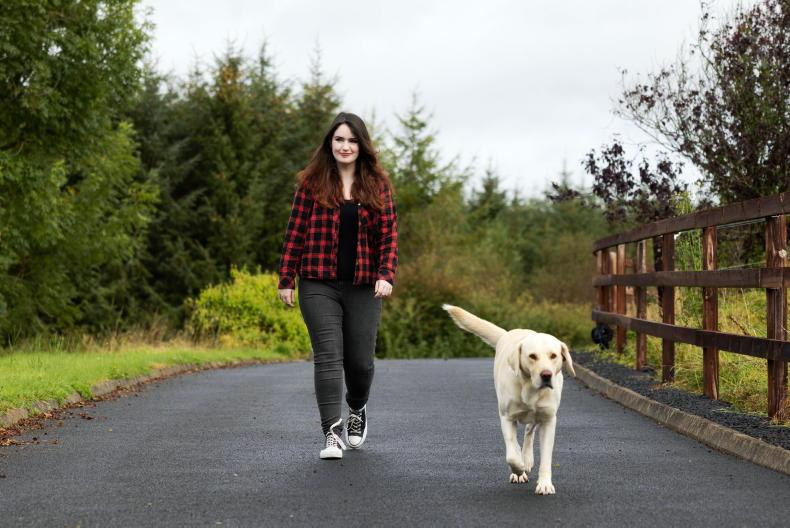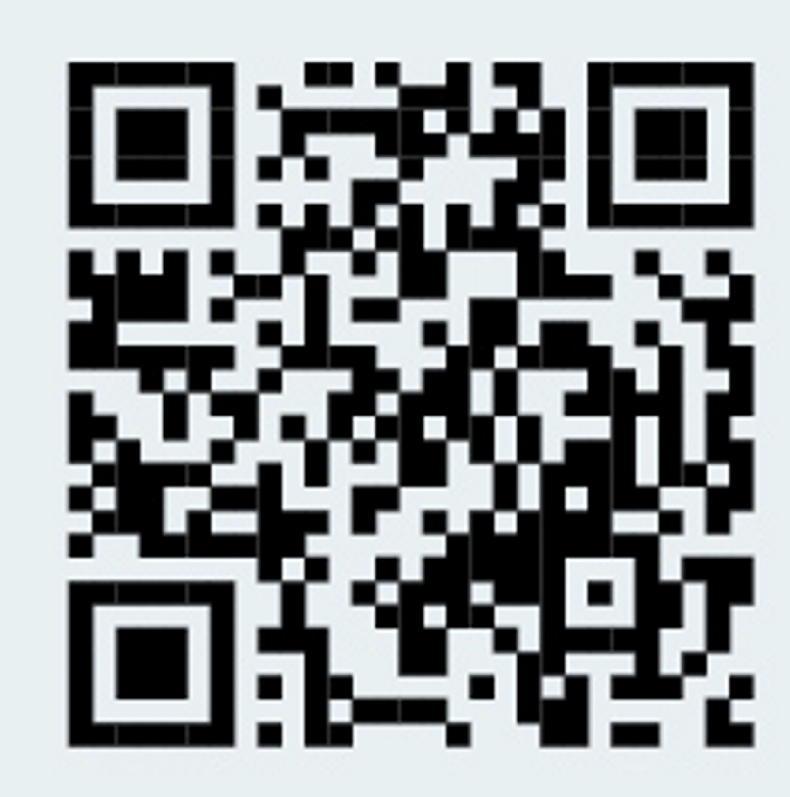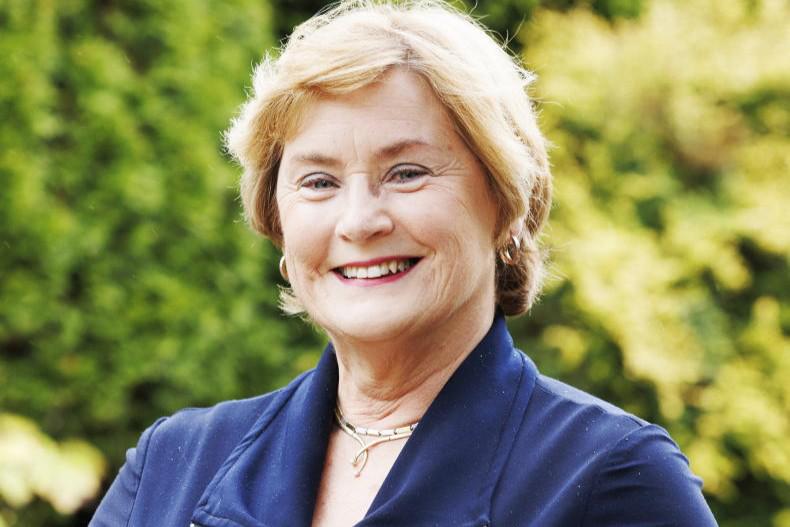Rebecca Ryan from Co Clare was only three years old when the rituals began: “I’d have to give my mom a toy every day before school to make sure that I’d have a great day,” she recalls.
“I’d have a lot of separation anxiety. So I’d give her a small toy, and that would be like a little ritual that, in my mind, would ensure that the day wouldn’t go wrong for me.”
These seemingly innocuous childhood quirks were the first signs of a condition that would escalate dramatically as Rebecca entered her teenage years.
Now aged 24, Rebecca was 13 years old when she was officially diagnosed with Obsessive Compulsive Disorder (OCD). According to research, about 2% of the population have OCD.
The World Health Organisation (WHO) previously listed OCD among the ten most disabling illnesses by lost income and decreased quality of life. Today the WHO lists anxiety disorders, including OCD, as the sixth largest contributor to non-fatal health loss globally.
“It got bad,” Rebecca tells Irish Country Living. “As I got older, it became related to numbers and colours. I preferred the number four.
“For a while, I used to do everything in fours. And then, when I hit 13, four became the enemy. That became the number that I had to avoid at all costs and all multiples of it.”
Indeed, the manifestations of her OCD became quite debilitating. Take writing, for example, where she “wouldn’t be able to write because I’d have to count the amount of words on every page just so that they weren’t multiples of the number four or eight.”
Colours played a role as well, with the colour blue becoming a symbol for sadness in Rebecca’s mind, which meant that it had to be avoided.
Mental rituals
OCD even affected Rebecca’s ability to move through her own home. “I had rituals for doorways,” she says.
“To get out of the house, I’d have to jump through windows instead of going through the door, because my doorway rituals would take way too long to complete every time I had to go out.” These doorway rituals were extensive and intricate, involving tapping of the feet and rhythm.
“Even if I performed it absolutely perfectly, when I got the thought that ‘I didn’t do it right’, all logic was out the window and I chose to do it again. And it would take up to, like, an hour for me to be able to go from one room to the other. So leaving through the window was just the easiest way.”
Rebecca’s OCD wasn’t limited to physical compulsions — she also developed mental rituals. “A lot of it would be prayer,” she says.
“I’d be saying prayers in my head over and over again. And if I thought I prayed for one parent more than the other, that meant that something out in the universe would cause something bad to happen to the other one.”
The impact on Rebecca’s daily life was severe. Her education suffered, particularly in subjects involving numbers.
For a while, I used to do everything in fours. And then, when I hit 13, four became the enemy. That became the number that I had to avoid at all costs and all multiples of it
“I wasn’t able to study maths and business studies, due to the numbers, it was a complete waste of time,” she recalls.
Social situations became increasingly challenging and some of her classmates started mocking her behaviours. Even simple activities like eating in a restaurant turned into ordeals.
“I remember I needed to have everything so straight that if I were eating in a restaurant, I’d have to line up all the chips on my plate,” she says.
“And it got so bad before I started the medication that I had to straighten used cigarette butts on the ground. It was horrendous. My parents were freaked out by it because their kid is just, you know, crouching besides dirty cigarette butts on the street.”
Her parents who operate a drystock beef cattle farm in Co Clare were always supportive, but initially they struggled to understand the severity of her condition.
“Back when it started, they couldn’t understand why I was entertaining these things that I expressed time and time again were illogical,” she explains. “Because I understood these were illogical. So my parents were asking, ‘why don’t you just stop’?”
Getting help
But Rebecca couldn’t stop and therefore, something needed to be done. They went to the family doctor, who then referred her to a private psychologist — the waiting list for the public psychiatry was very long and her parents didn’t want to waste any more time.
Treatment for Rebecca involved a multi-faceted approach, combining medication (Prozac, an antidepressant) and cognitive behavioral therapy (CBT).
“I started out with a therapist and I did CBT and a bit of exposure response prevention (ERP),” she says.
CBT helps patients identify and change negative thought patterns and behaviours; and ERP is a type of CBT that exposes patients to OCD triggers (eg dirt) while preventing compulsive responses (eg washing hands for 15 minutes) to reduce anxiety over time. However, the process wasn’t straightforward.
“I was so deeply entrenched in the disorder that I just flat out refused to do it at first,” she recounts. Medication played a crucial role in the battle.
“I went on a low dose of Prozac at the time, and it was slowly increased over a while in increments. So gradually I was able to entertain the thought of pushing back against these compulsive behaviours. And as the dosage increased, I became able to make some progress with CBT.”
Since then, Rebecca has made great strides in managing her OCD. “It’s mostly gone at this stage. It’s more generalised anxiety now,” she says.

Rebecca Ryan with "Charlie" at home in KIlmurry McMahon, Co Clare \ Photograph by Eamon Ward
She can now recognise and challenge OCD-like thoughts when they arise. The residual anxiety that remains is mainly focused on her parents’ well-being. She says, “I suppose the only slightly compulsive thing I have left is that I have to tell them to be safe every time I leave.”
Rebecca’s experience with OCD inspired her to write a book when she was just 16 years old called – Dictatorship: My Teenage War with OCD.
“I’ve always found that when it’s hard to understand something, it’s easier to analyse and rationalise it when it’s written down in front of you,” she explains.
“So when I had OCD, I started keeping a diary about it all. I would write about how hard a given day was. I documented the therapies and stuff that I went through.”
The book also aimed to provide relatable content for young people struggling with OCD.
“Throughout my own experience, I was trying to find something to relate to that wasn’t the 40-year-old American man in the sitcom,” Rebecca says, referring to the TV-series Monk about a private detective who struggles with OCD.
“Lovely fella, but he’s not me. I was 13, I’m a girl, and nobody knows what it’s like living with OCD at my age.”
While OCD has been a significant challenge in Rebecca’s life, she acknowledges that it has also given her some unique strengths. “I can be quite a bit of a perfectionist. I can scrutinise things and pick out very small faults and very small deviants,” she notes.
After her book was published, she went on to get a degree in computer software engineering and is now an IT analyst at ESB. “Also, having experienced crazy amounts of anxiety, any kind of emergency situation is very easy to deal with now.”
Rebecca’s journey with OCD is a testament to the complexity of the disorder and the resilience of those who live with it.
From a young girl trapped in rituals to a successful software engineer who has largely conquered her OCD, her story offers hope for others battling this challenging condition.
Dictatorship: My Teenage War with OCD is published by Onstream and available in bookshops and online at onstream.ie
If you think you or someone you know may have OCD, talk to your doctor about the symptoms. They will refer you to a professional who can help.Aware’s Life Skills Online: Based on the principles of cognitive behavioural therapy (CBT), the Life Skills Programme is designed to help you learn more about how we think and how this can influence our actions in helpful or unhelpful ways.The programme is comprised of eight modules which you can work through online in your own time from the comfort of your own home. You benefit from the support of an Aware trained volunteer Supporter for the first eight weeks, who you can choose to share your progress with. The next programme opens for registration on 21 October 2024 at 4pm. Check out aware.ie/programmes/life-skills-programme
To donate directly to Aware, please scan the QR code.
Rebecca Ryan from Co Clare was only three years old when the rituals began: “I’d have to give my mom a toy every day before school to make sure that I’d have a great day,” she recalls.
“I’d have a lot of separation anxiety. So I’d give her a small toy, and that would be like a little ritual that, in my mind, would ensure that the day wouldn’t go wrong for me.”
These seemingly innocuous childhood quirks were the first signs of a condition that would escalate dramatically as Rebecca entered her teenage years.
Now aged 24, Rebecca was 13 years old when she was officially diagnosed with Obsessive Compulsive Disorder (OCD). According to research, about 2% of the population have OCD.
The World Health Organisation (WHO) previously listed OCD among the ten most disabling illnesses by lost income and decreased quality of life. Today the WHO lists anxiety disorders, including OCD, as the sixth largest contributor to non-fatal health loss globally.
“It got bad,” Rebecca tells Irish Country Living. “As I got older, it became related to numbers and colours. I preferred the number four.
“For a while, I used to do everything in fours. And then, when I hit 13, four became the enemy. That became the number that I had to avoid at all costs and all multiples of it.”
Indeed, the manifestations of her OCD became quite debilitating. Take writing, for example, where she “wouldn’t be able to write because I’d have to count the amount of words on every page just so that they weren’t multiples of the number four or eight.”
Colours played a role as well, with the colour blue becoming a symbol for sadness in Rebecca’s mind, which meant that it had to be avoided.
Mental rituals
OCD even affected Rebecca’s ability to move through her own home. “I had rituals for doorways,” she says.
“To get out of the house, I’d have to jump through windows instead of going through the door, because my doorway rituals would take way too long to complete every time I had to go out.” These doorway rituals were extensive and intricate, involving tapping of the feet and rhythm.
“Even if I performed it absolutely perfectly, when I got the thought that ‘I didn’t do it right’, all logic was out the window and I chose to do it again. And it would take up to, like, an hour for me to be able to go from one room to the other. So leaving through the window was just the easiest way.”
Rebecca’s OCD wasn’t limited to physical compulsions — she also developed mental rituals. “A lot of it would be prayer,” she says.
“I’d be saying prayers in my head over and over again. And if I thought I prayed for one parent more than the other, that meant that something out in the universe would cause something bad to happen to the other one.”
The impact on Rebecca’s daily life was severe. Her education suffered, particularly in subjects involving numbers.
For a while, I used to do everything in fours. And then, when I hit 13, four became the enemy. That became the number that I had to avoid at all costs and all multiples of it
“I wasn’t able to study maths and business studies, due to the numbers, it was a complete waste of time,” she recalls.
Social situations became increasingly challenging and some of her classmates started mocking her behaviours. Even simple activities like eating in a restaurant turned into ordeals.
“I remember I needed to have everything so straight that if I were eating in a restaurant, I’d have to line up all the chips on my plate,” she says.
“And it got so bad before I started the medication that I had to straighten used cigarette butts on the ground. It was horrendous. My parents were freaked out by it because their kid is just, you know, crouching besides dirty cigarette butts on the street.”
Her parents who operate a drystock beef cattle farm in Co Clare were always supportive, but initially they struggled to understand the severity of her condition.
“Back when it started, they couldn’t understand why I was entertaining these things that I expressed time and time again were illogical,” she explains. “Because I understood these were illogical. So my parents were asking, ‘why don’t you just stop’?”
Getting help
But Rebecca couldn’t stop and therefore, something needed to be done. They went to the family doctor, who then referred her to a private psychologist — the waiting list for the public psychiatry was very long and her parents didn’t want to waste any more time.
Treatment for Rebecca involved a multi-faceted approach, combining medication (Prozac, an antidepressant) and cognitive behavioral therapy (CBT).
“I started out with a therapist and I did CBT and a bit of exposure response prevention (ERP),” she says.
CBT helps patients identify and change negative thought patterns and behaviours; and ERP is a type of CBT that exposes patients to OCD triggers (eg dirt) while preventing compulsive responses (eg washing hands for 15 minutes) to reduce anxiety over time. However, the process wasn’t straightforward.
“I was so deeply entrenched in the disorder that I just flat out refused to do it at first,” she recounts. Medication played a crucial role in the battle.
“I went on a low dose of Prozac at the time, and it was slowly increased over a while in increments. So gradually I was able to entertain the thought of pushing back against these compulsive behaviours. And as the dosage increased, I became able to make some progress with CBT.”
Since then, Rebecca has made great strides in managing her OCD. “It’s mostly gone at this stage. It’s more generalised anxiety now,” she says.

Rebecca Ryan with "Charlie" at home in KIlmurry McMahon, Co Clare \ Photograph by Eamon Ward
She can now recognise and challenge OCD-like thoughts when they arise. The residual anxiety that remains is mainly focused on her parents’ well-being. She says, “I suppose the only slightly compulsive thing I have left is that I have to tell them to be safe every time I leave.”
Rebecca’s experience with OCD inspired her to write a book when she was just 16 years old called – Dictatorship: My Teenage War with OCD.
“I’ve always found that when it’s hard to understand something, it’s easier to analyse and rationalise it when it’s written down in front of you,” she explains.
“So when I had OCD, I started keeping a diary about it all. I would write about how hard a given day was. I documented the therapies and stuff that I went through.”
The book also aimed to provide relatable content for young people struggling with OCD.
“Throughout my own experience, I was trying to find something to relate to that wasn’t the 40-year-old American man in the sitcom,” Rebecca says, referring to the TV-series Monk about a private detective who struggles with OCD.
“Lovely fella, but he’s not me. I was 13, I’m a girl, and nobody knows what it’s like living with OCD at my age.”
While OCD has been a significant challenge in Rebecca’s life, she acknowledges that it has also given her some unique strengths. “I can be quite a bit of a perfectionist. I can scrutinise things and pick out very small faults and very small deviants,” she notes.
After her book was published, she went on to get a degree in computer software engineering and is now an IT analyst at ESB. “Also, having experienced crazy amounts of anxiety, any kind of emergency situation is very easy to deal with now.”
Rebecca’s journey with OCD is a testament to the complexity of the disorder and the resilience of those who live with it.
From a young girl trapped in rituals to a successful software engineer who has largely conquered her OCD, her story offers hope for others battling this challenging condition.
Dictatorship: My Teenage War with OCD is published by Onstream and available in bookshops and online at onstream.ie
If you think you or someone you know may have OCD, talk to your doctor about the symptoms. They will refer you to a professional who can help.Aware’s Life Skills Online: Based on the principles of cognitive behavioural therapy (CBT), the Life Skills Programme is designed to help you learn more about how we think and how this can influence our actions in helpful or unhelpful ways.The programme is comprised of eight modules which you can work through online in your own time from the comfort of your own home. You benefit from the support of an Aware trained volunteer Supporter for the first eight weeks, who you can choose to share your progress with. The next programme opens for registration on 21 October 2024 at 4pm. Check out aware.ie/programmes/life-skills-programme
To donate directly to Aware, please scan the QR code.











SHARING OPTIONS